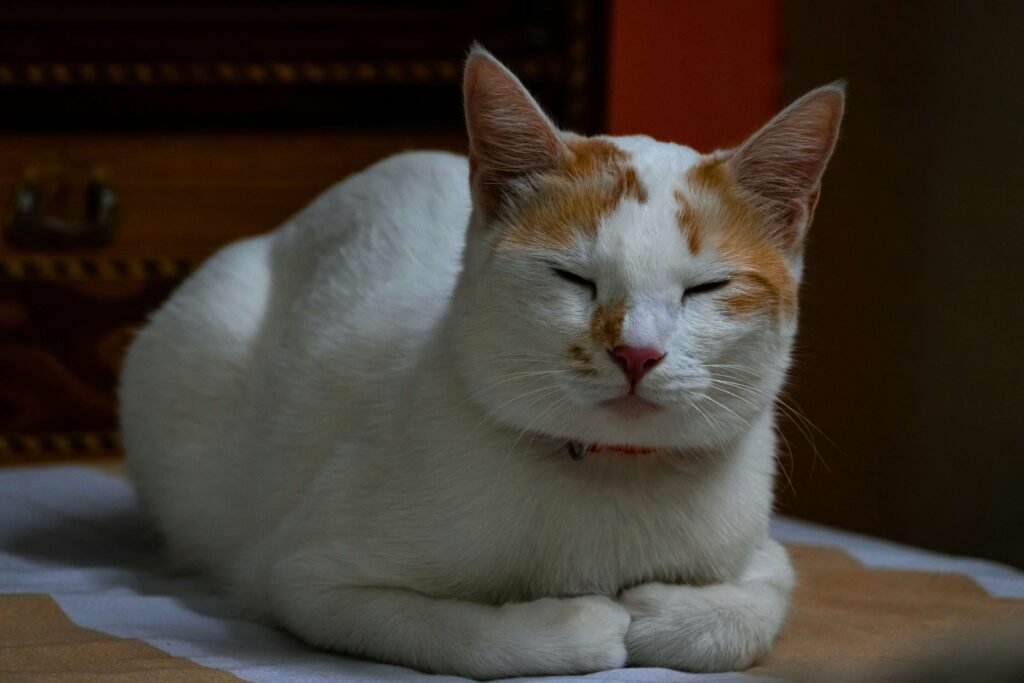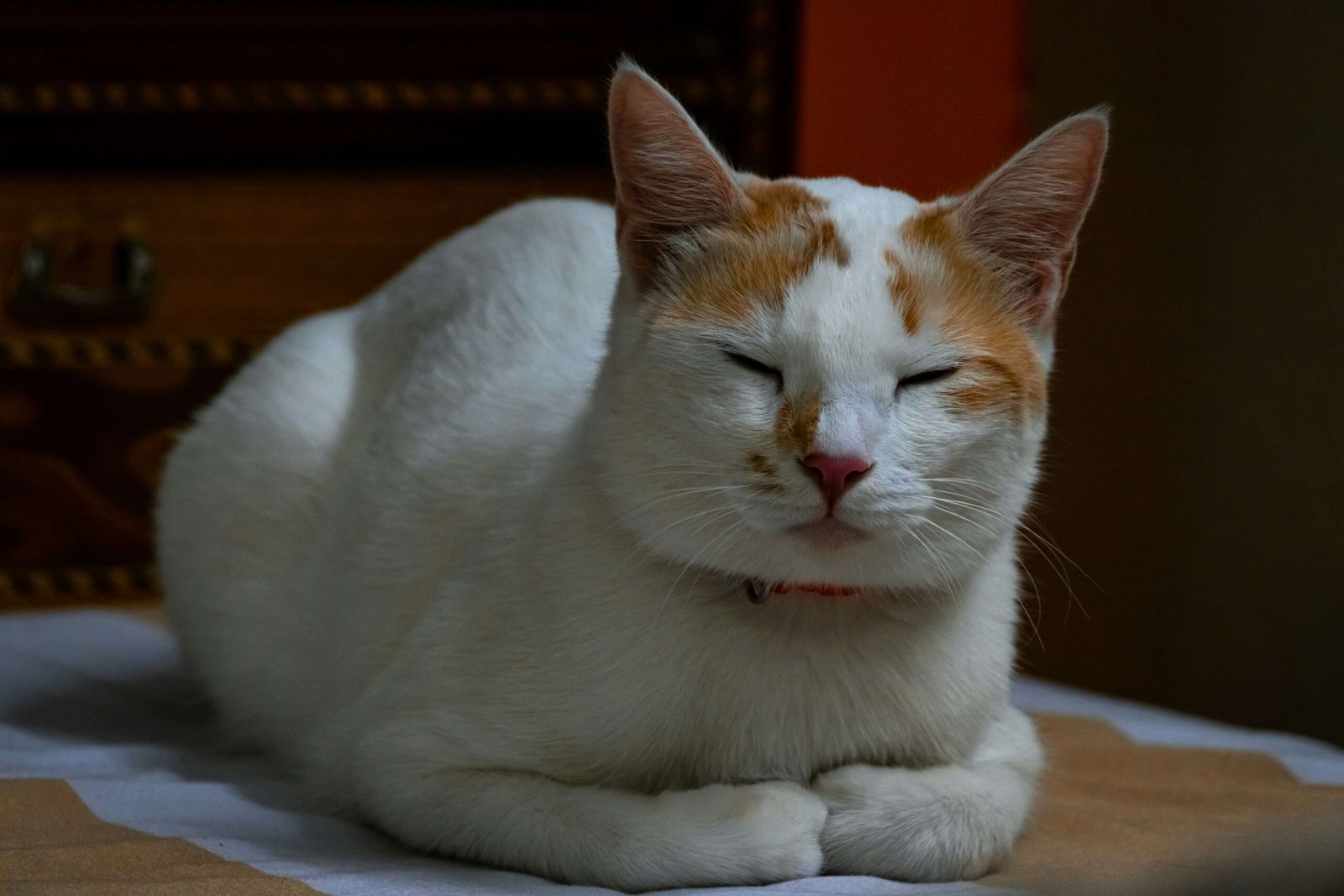Understanding Cat Nose Scabs: Causes, Symptoms, and Care
Cats are known for their curious and independent nature, but they’re also prone to small health issues that can sometimes go unnoticed. One such issue is a cat nose scab. While it might seem like a minor concern, a scab on your cat’s nose could be a sign of something more serious or simply the result of an accidental scratch. As a cat owner, it’s important to understand what causes these scabs, how to identify them, and when to take action. In this blog post, we’ll dive into everything you need to know about cat nose scabs, from potential causes to practical care tips, ensuring your feline friend stays happy and healthy.
Common Causes of Cat Nose Scabs
A scab on your cat’s nose can arise from a variety of reasons, ranging from minor injuries to underlying health conditions. Understanding the root cause is essential for proper care and treatment. Below are some of the most common causes of cat nose scabs:
Scratches or Abrasions: Cats often rub their noses against rough surfaces, which can lead to small cuts or abrasions that scab over.
Allergies: Environmental or food allergies can cause irritation on a cat’s skin, including the sensitive area around the nose.
Infections: Bacterial or fungal infections can lead to inflammation and scabbing on the nose.
Parasites: Fleas, mites, or other parasites may cause excessive scratching, leading to scabs.
Sunburn: Cats with lighter fur or exposed skin are susceptible to sunburn, which can result in scabbing.
If you notice a persistent or worsening scab on your cat’s nose, it’s important to monitor the situation closely and consult a veterinarian if necessary.
Symptoms to Watch For: Is It Just a Scab or Something More?
While a single scab might not always be alarming, certain accompanying symptoms can indicate a more serious issue. Here’s what to look for if your cat has a nose scab:
Redness or Swelling: Inflammation around the scab could signal an infection or allergic reaction.
Excessive Licking or Scratching: If your cat is obsessively licking or scratching the area, it might be trying to relieve discomfort.
Discharge or Bleeding: Any unusual discharge or persistent bleeding should be evaluated by a vet.
Behavioral Changes: A sudden change in your cat’s behavior, such as lethargy or loss of appetite, could indicate pain or illness.
Hair Loss Around the Nose: Hair loss near the scabbed area might point to a skin condition or parasite infestation.
Monitoring these symptoms can help you determine whether the scab is a minor issue or requires professional attention.
Check this guide 👉The Fascinating World of the Cat Nose: Best 7 Expert Tips!
Check this guide 👉Why Does My Cat Bite My Nose? Best 7 Expert Behavior Tips!
Check this guide 👉Why Does My Cat Lick My Nose? Best 7 Behavior Tips!

Minor Scab Indicators | Serious Scab Indicators |
|---|---|
Small, isolated scab | Large or multiple scabs |
No redness or swelling | Noticeable redness and swelling |
Cat shows no signs of discomfort | Excessive licking or scratching |
Scab heals within a few days | Scab persists or worsens over time |
No behavioral changes | Lethargy or loss of appetite |
How to Care for a Cat Nose Scab at Home
If your cat’s nose scab appears to be minor and isn’t accompanied by worrying symptoms, you can take steps to care for it at home. Proper care can promote healing and prevent further irritation. Here are some tips:
Keep the Area Clean: Gently clean the scab with a damp cloth to remove dirt or debris.
Prevent Licking or Scratching: Use an Elizabethan collar (cone) if your cat is obsessively licking the area.
Apply a Pet-Safe Ointment: Consult your vet before applying any ointment to ensure it’s safe for your cat.
Monitor for Healing: Check the scab daily to ensure it’s healing properly and not becoming infected.
Provide a Stress-Free Environment: Reduce stressors in your cat’s environment to help them heal faster.
By following these steps, you can support your cat’s recovery while keeping an eye out for any complications.
When to See a Veterinarian for a Cat Nose Scab
While many cat nose scabs heal on their own, some cases require professional veterinary care. Knowing when to seek help can make all the difference in your cat’s health. Consider the following scenarios:
Persistent Scabbing: If the scab doesn’t heal after a week or two, it’s time to consult a vet.
Signs of Infection: Pus, foul odor, or increased redness around the scab are signs of infection.
Underlying Health Conditions: If your cat has other symptoms, such as sneezing or nasal discharge, it could indicate an illness.
Parasite Infestation: Visible fleas, mites, or ticks require immediate treatment from a vet.
Severe Pain or Discomfort: If your cat seems to be in pain or avoids touching its nose, seek professional advice.
Prompt veterinary care can prevent complications and ensure your cat receives the treatment it needs.
Preventing Cat Nose Scabs
Prevention is always better than cure, especially when it comes to your cat’s health. By taking a few proactive steps, you can reduce the likelihood of nose scabs and keep your feline friend comfortable. Here are some practical tips to prevent cat nose scabs:
Provide a Safe Environment: Remove sharp objects or rough surfaces that could cause scratches or abrasions.
Use Pet-Safe Sunscreen: If your cat spends time outdoors, apply pet-safe sunscreen to protect their sensitive skin from sunburn.
Regular Grooming: Keep your cat’s fur clean and well-maintained to minimize the risk of skin irritation.
Monitor Allergens: Identify and eliminate potential allergens in your home, such as certain cleaning products or foods.
Schedule Routine Vet Checkups: Regular vet visits can help catch and address minor issues before they escalate.
By implementing these preventive measures, you can significantly reduce the chances of your cat developing nose scabs and ensure their overall well-being.
Home Remedies for Minor Nose Scabs
If your cat has a minor nose scab, there are several home remedies you can try to aid the healing process. However, always prioritize safety and consult your vet before trying anything new. Below are some gentle and effective home care options:
Saltwater Solution: Mix a small amount of salt with warm water and use a cotton ball to gently clean the area.
Aloe Vera Gel (Pet-Safe): Apply a small amount of pet-safe aloe vera gel to soothe irritated skin.
Coconut Oil (Unflavored): Dab a tiny amount of unflavored coconut oil on the scab to promote healing.
Hydration: Ensure your cat stays hydrated, as proper hydration supports skin health.
Soft Bedding: Provide soft bedding to prevent further irritation to the affected area.
While these remedies can help with minor scabs, remember that professional advice is crucial if the condition doesn’t improve.
Behavioral Changes Linked to Nose Scabs
Sometimes, a cat’s behavior can provide clues about the underlying cause of a nose scab. Observing changes in their habits can help you identify potential triggers. Here are some behavioral signs to watch for:
Increased Grooming: Excessive grooming around the nose might indicate discomfort or pain.
Avoidance of Touch: If your cat avoids being touched near the nose, it could signal sensitivity or irritation.
Hiding More Often: Cats often hide when they’re feeling unwell, so increased hiding could be a red flag.
Loss of Interest in Play: A sudden disinterest in playtime might suggest your cat is feeling unwell.
Aggression When Handled: Uncharacteristic aggression could mean the scab is causing significant discomfort.
Paying attention to these behavioral changes can help you act quickly and ensure your cat receives the care they need.
Frequently Asked Questions About Cat Nose Scabs
Can I use human ointments on my cat’s nose scab?
No, human ointments can be toxic to cats. Always consult your vet before applying any product.
How long does it take for a cat nose scab to heal?
Minor scabs typically heal within 7–10 days, but persistent scabs may require veterinary attention.
Are cat nose scabs contagious?
Most scabs aren’t contagious, but if caused by parasites or infections, they could spread to other pets.
Can allergies cause scabs on a cat’s nose?
Yes, allergies can lead to skin irritation and scabbing, especially around sensitive areas like the nose.
Should I be worried if my cat gets a nose scab?
Not necessarily, but monitor the scab for signs of infection or worsening symptoms.
Final Thoughts: Keeping Your Cat’s Nose Healthy
A cat nose scab might seem like a small issue, but it’s important to pay attention to your feline friend’s health. By understanding the causes, symptoms, and care options, you can ensure your cat stays comfortable and happy. Remember, when in doubt, consulting a veterinarian is always the safest choice. With proper care and vigilance, you can address nose scabs effectively and keep your cat purring with contentment.
Cat Anaphylactic Shock Treatment Costs: Best 7 Expert Tips! – Learn about costs, treatments, and financial aid options to save your cat’s life.
Exocrine Pancreatic Insufficiency in Cats: Best 7 Tips! – Learn to spot symptoms, manage EPI effectively, and improve your cat’s quality of life with expert advice.
Cost of Dog Anaphylactic Shock Treatment: Best 7 Tips! – Learn about emergency costs, financial planning, and ways to manage expenses for your dog’s care.
Exocrine Pancreatic Insufficiency in Dogs: Best 7 Tips! – Learn to spot symptoms, manage EPI effectively, and improve your dog’s quality of life with expert guidance.





